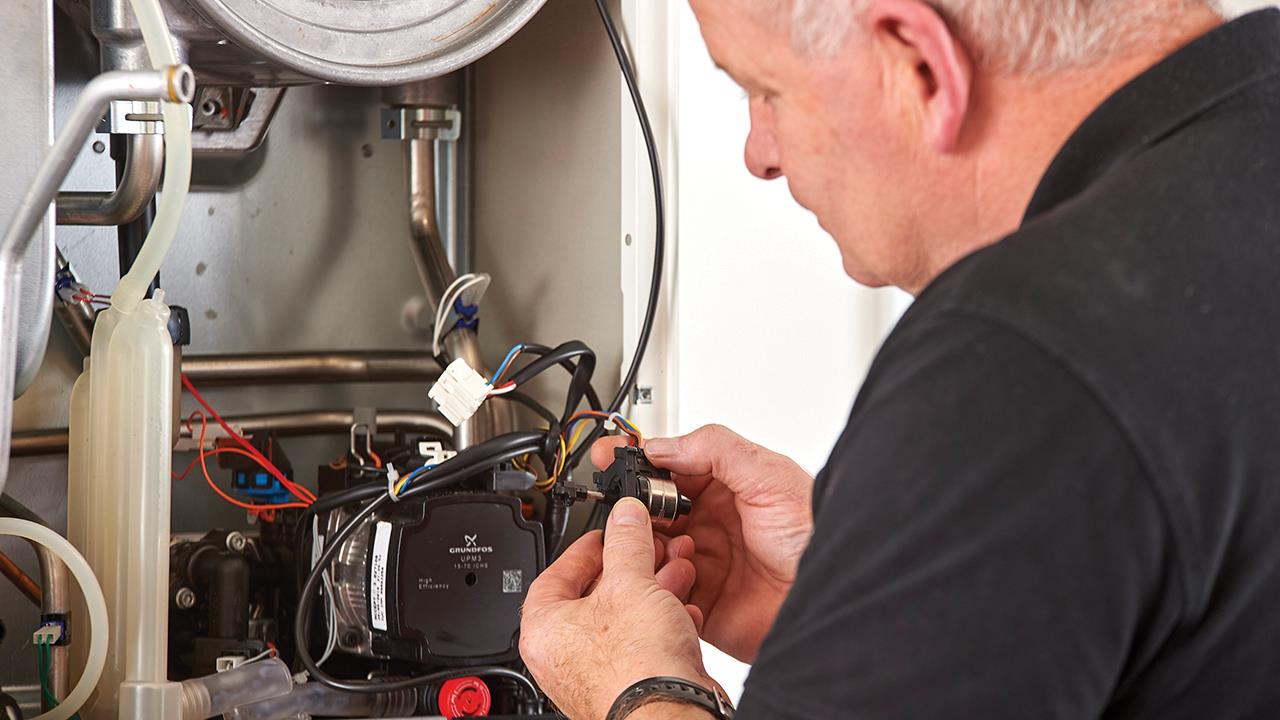

The UK government has set a target for achieving national net-zero carbon emissions by 2050, and with space heating contributing approximately 17% of the UK’s greenhouse gas emissions, decarbonising our domestic heating systems is top of the agenda for reaching this goal.
The Climate Change Committee, which advises government on how to reach its 2050 target, believes that consumer buy-in for low carbon heating systems is vital, stating that “public support and attitudes will play an important role in the shape of our future heating technologies”.
The hydrogen sector has recently called on the government to do more to support 100% of new boilers being fully hydrogen-powered by 2026; however, it’s come to light that hydrogen is unlikely to a huge role in future of domestic heating.
The switch to 100% hydrogen seems destined to be an extremely expensive process and necessitate large changes to the existing gas mains network throughout the country. It will also require every home in certain areas to have a 100%-ready appliance at the time of the switch over.
We believe we will see hydrogen created and used mainly in industrial areas where high power is required, and it is near these areas that we could envisage newbuild developments running on 100% hydrogen.
However, there are more tangible actions homeowners can be taking right now to achieve lower carbon living.
For the majority of existing UK housing stock, heat pumps are presented as the best solution. At Alpha, we are advising homeowners to consider purchasing a newer hybrid model – which will allow them to keep the familiarity of the gas boiler alongside new heat pump technology, and reduce emissions and bills right away.
For example, should a homeowner’s boiler break down or constantly be in need of repairs, installers should be reassuring them that they don’t need to worry about replacing it with a fully hydrogen-powered one. Instead, they can replace their boiler like-for-like with one that is simply ‘hydrogen-ready’.
All new Alpha boilers are hydrogen-blend ready, with the government even trialling a small amount (20%) of hydrogen in the gas system last year – which was found to reduce gas emissions by 7%. This means that homeowners can still enjoy the benefits of a new boiler now, without feeling concerned that it will need to be replaced when hydrogen blending is introduced.
However, hydrogen is still a number of years away from being introduced, and fully hydrogen-powered homes are only being trialled in small communities. Thus, homeowners should look towards other carbon-friendly technologies, such as air source heat pumps, that will not only reduce emissions but cut bills even further.
The most common heat pump found in UK homes today is the air-to-water type. This has an outdoor unit that collects heat from the air and heats up water for the radiators or underfloor heating. The heat pump can also provide hot water to a cylinder for use in showers and hot taps.
A heat pump is energy efficient as, on average, it uses one kilowatt of electricity to produce approximately three kilowatts of heat (depending on the size of the system and outdoor temperatures).
A hybrid approach also offers numerous benefits. As they can provide both heating and hot water, they can cleverly combine live energy prices with the outdoor temperature, meaning the system can choose the most efficient combination to heat the home.
When pairing a heat pump with a combi boiler, the heat pump can provide space heating around the home, and the gas boiler can continue to supply the hot water – with homeowners benefitting from very energy efficient heating, while retaining the convenience of instant hot water from the boiler. Hot water cylinders are also no longer required, meaning that the homeowner can gain vital space within their home.
The boiler can also function as a backup to the heat pump, and provide extra heating; ensuring the home is warm and comfortable year-round.
In addition, homes that use a heat pump-only approach for heating and hot water will almost always have to factor in the cost of new radiators into the upgrade.
The hybrid approach means that it’s more feasible to retain existing radiators (depending on the age of the system); an option that not only saves on the upfront costs, but also the disruption of replacing radiators.
It’s clear that there are a number of benefits to hybrid heating systems – all of which homeowners can achieve now rather than wait for hydrogen technology to come to fruition, which could put them off reducing their carbon footprint and monthly bills for another 10 years.
A hybrid boiler/heat pump system offers a great way to take a step into renewable heating without losing the reliability and familiarity offered by the traditional gas boiler.
As the Climate Change Committee said, it’s vital that we have public support for low carbon technologies to help realise a net-zero future.
Installing air source heat pumps as part of a hybrid system will not only reduce our personal carbon footprints, but also mitigate the effects of rising energy prices.
If you'd like to keep up-to-date with the latest developments in the heating and plumbing industry, why not subscribe to our weekly newsletters? Just click the button below and you can ensure all the latest industry news and new product information lands in your inbox every week.